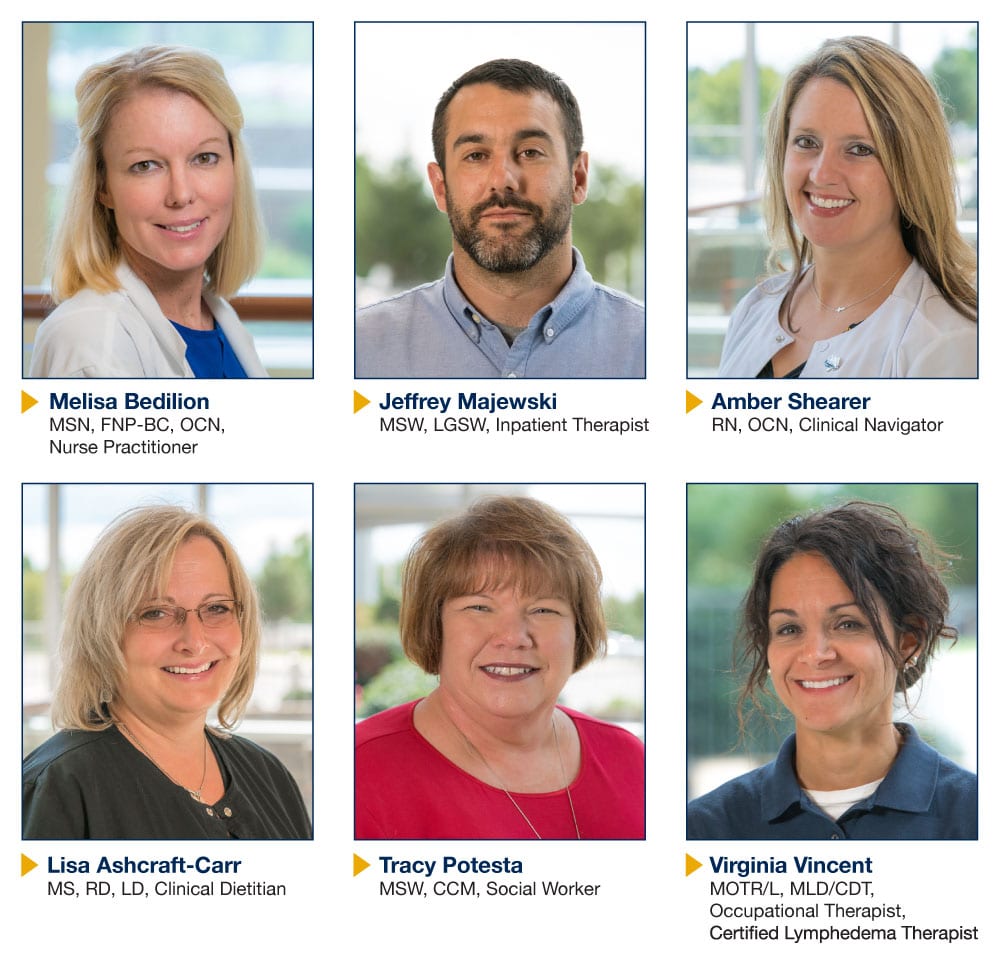 WVU Cancer Institute’s Cancer Prevention and Control began implementing the Bridge Program in Morgantown in March 2017, and recently United Hospital Center has become part of the Bridge Program offering expanded services to lung cancer patients. The Bridge Program brings together healthcare professionals from multiple disciplines to create a comprehensive care plan tailored to the specific needs of each patient. During the half-day clinic, each patient has the opportunity to meet individually with a nurse practitioner, licensed social worker, dietician, rehab, behavioral therapist, and navigator.
WVU Cancer Institute’s Cancer Prevention and Control began implementing the Bridge Program in Morgantown in March 2017, and recently United Hospital Center has become part of the Bridge Program offering expanded services to lung cancer patients. The Bridge Program brings together healthcare professionals from multiple disciplines to create a comprehensive care plan tailored to the specific needs of each patient. During the half-day clinic, each patient has the opportunity to meet individually with a nurse practitioner, licensed social worker, dietician, rehab, behavioral therapist, and navigator.
“Lung cancer is the leading cause of cancer death in West Virginia and one of the most commonly diagnosed, accounting for more than 18% of the newly diagnosed cancer cases each year, indicating a need for such services in our state.” – Stephenie Kennedy, Ed.D., associate director for Cancer Prevention and Control and principal investigator for the program.
Those Enrolled In the Program Will:
- Meet with multiple care providers in a half-day clinic,
- Receive a comprehensive, person-centered survivorship plan on the day of attendance,
- Meet with other survivors and their families,
- Receive information on valuable resources to survivors of lung cancer, and
- Have continued assistance from a program coordinator, who will ensure the needs identified in the survivorship plan are met.
In the months following the clinic, the patient can expect follow-up communication from the program coordinator and additional assessments that are completed to ensure patient satisfaction and assistance with ongoing health concerns/needs.
“It has been an exciting opportunity to be part of this project with the WVU Cancer Institute, as a gap in care has been identified for the Lung Cancer Survivors of West Virginia,” said Linda Carte, RN, MSN, AOCN, Vice President of Oncology and Post-Acute Care at United Hospital Center. “While Lung Cancer survivors are the first to have the opportunity to participate in this bridge program, it is a model that can certainly be extended to all those surviving cancer to improve quality of life after diagnosis and treatment. We are looking forward to this ongoing collaboration to improve cancer care for the many communities we serve.”
Please note, the information provided throughout this site is not intended or implied to be a substitute for professional medical advice, diagnosis, or treatment. All content, including text, graphics, images, and video, on or available through this website is for general information purposes only. If you are experiencing related symptoms, please visit your doctor or call 9-1-1 in an emergency.